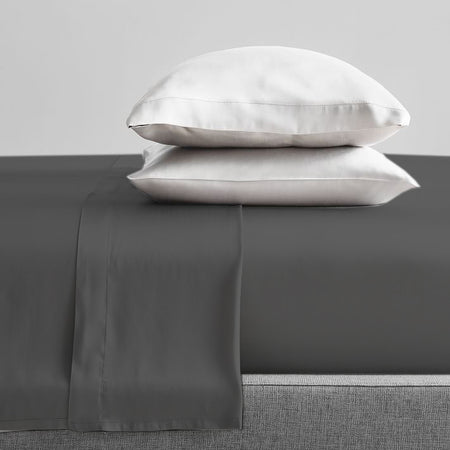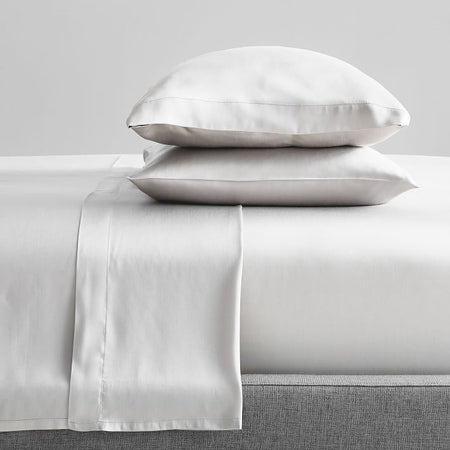Nothing rejuvenates like a good night's sleep. But what happens when you can't have a good night's sleep because your bed partner snores? Unfortunately, this is something most people have to endure. But the good news is that there are things that can help with a snoring partner, most of which we'll cover in this article.
Ways to help with a snoring partner.

1. Monitor their sleeping position
If your partner snores, there's a very good chance that their sleeping position is the culprit. Sleep position contributes 56% to 80% of all obstructive sleep apnea (OSA) patient cases. OSA is a sleep disorder that causes one to stop and start breathing while they sleep.
According to the Journal of Clinical Sleep research, supine position is the main aggravating factor for these patients. The America Sleep Apnea Association estimates 22 million Americans are suffering from obstructive sleep apnea.
The good news is that you can easily resolve this by getting a good quality mattress that allows your partner to sleep on their side. We’ll cover more about mattresses later on in this article. Sleeping on your side can reduce snoring as the soft palate won't block the nasal passage. Be sure to add a pillow for additional support.
Positional therapy (PT) can also help address obstructive sleep apnea. PT uses devices to help people sleep in non-supine positions – like on their side. It is an effective secondary therapy for people with positional obstructive sleep apnea.
2. Discourage alcohol and sedative use
Alcohol consumption is linked to worsening severity of sleep apnea and snoring. So if your partner drinks alcohol and snores at night, it's not a coincidence – there's a reason it happens. Alcohol causes your body to spend less time in REM sleep – which is the most important sleep for motor skills and concentration. Lack of REM sleep keeps one up through the night, causing night sweats, insomnia, and hangover in the morning.
Additionally, alcohol has sedative effects that induce feelings of relaxation of the body muscles. The resting of the muscles at the throat cause the blockage of the nasal passage. Also, when alcohol is absorbed in the body, it interferes with the functioning of the central nervous system. A blend of these two disrupts the movement of air, causing more snoring.

The best way to help your partner stop snoring is to advise them to quit drinking alcohol. If they can’t stop, they shouldn’t drink less than five hours before bedtime. Better yet, they should take water before sleeping.
3. Work towards losing weight
Excess weight, especially the fatty tissue around the neck and throat, can contribute to snoring. People who are overweight snore more because they have a narrow airway – making it hard for the air to flow freely. Fat belly also pushes the diaphragm and the chest muscles to compress the rib cage, causing more air circulation issues.
Exercising and losing weight can be all it takes to end your partner's snoring. Exercises like walking, cycling, weight training, yoga, Pilates, swimming, and interval training can help your loved one burn excess calories. It's also a good idea to encourage your partner to practice good sleep hygiene as research shows it can aid with weight loss.
4. Visit a Doctor for Medical Evaluation
Snoring can be a result of many things – most which we've highlighted in this article. But it's always best to talk to your doctor before exploring home remedies and other alternatives. This is especially true if the snoring is loud enough to be heard in the next room, affects the ability to think clearly, or causes daytime sleepiness. Your partner should also seek medical attention if they suspect an ear, nose, and throat infection or stop breathing at night.
Evaluation by a doctor helps identify sleep apnea in the early stages – keeping a patient safe from conditions such as depression, heart problems, and cancer. The doctor will review the signs and symptoms as well as the medical history to diagnose snoring.

They will also perform a physical test and ask you questions about when and how your partner snores to assess the severity of the issue. In some cases, the doctor will request an imaging test like CT scan, X-ray, MRI to check the airway structure for issues like a deviated septum.
Following diagnosis, the doctor may suggest oral appliances, pressurized air, or upper airway surgery.
5. Change Your Mattress and Pillows
We can't ignore the contribution of beddings towards snoring. Poor quality mattresses, pillows, and blankets do not adapt to the body's motion because, well, they’re poor quality.
As a result, the mattress compresses the muscles such that the rib cage cannot move properly. On the other hand, the pillow forces the neck muscles upwards, resulting in blockage of the nasal passage. Due to both occurrences, the bed partner may snore to the extreme.
According to a 2015 study, a memory foam head pillow can help your bed partner get better sleep. Experts recommend using memory foam which is made of compounds like polyurethane, to increase viscosity and density. Some other benefits of memory foam mattresses include hugging the body for more comfort, sag-free, and motion absorption.

A memory foam head pillow allows the head to sink, so the nasal passage remains clear for easy breathing. As a result, the mattress and pillow will move with the body's muscles, making your loved one free and relaxed for easy passage of air.
Other mattresses worth exploring include innerspring mattresses and hybrid mattresses. The goal is to find a quality mattress that offers the right combination of support and comfort. If you have no idea where to start, you can check out The Bedding Mart site that provides advice on mattresses. This will help you make an informed buying decision.
Bearing all the sleeping frustration with a snoring bed partner may be the craziest challenge you're facing right now. You may end up having sleepless nights yourself while your partner swims in the paradise dreamland. The five ways prescribed in this article are worthwhile, as they can save you from all the troubles.






















